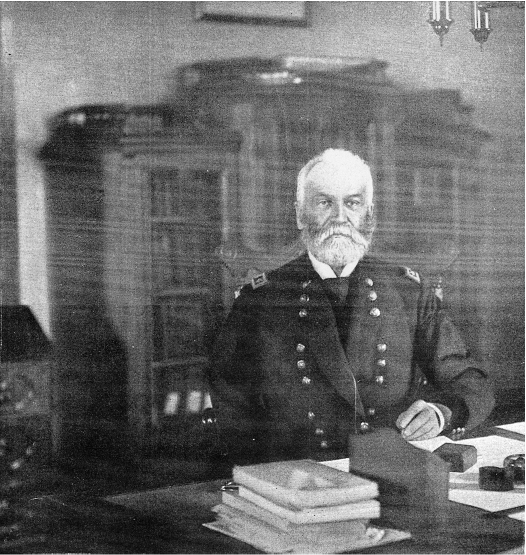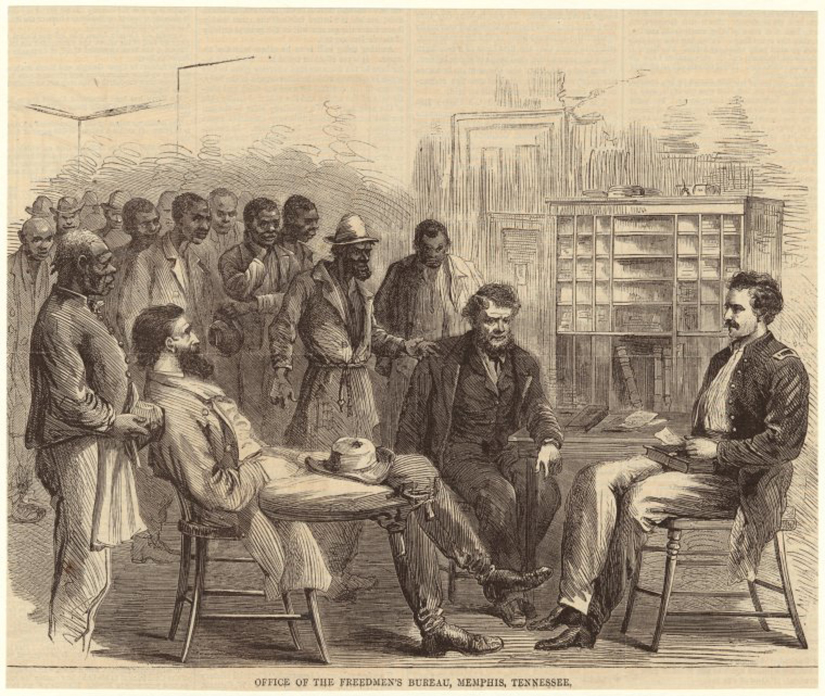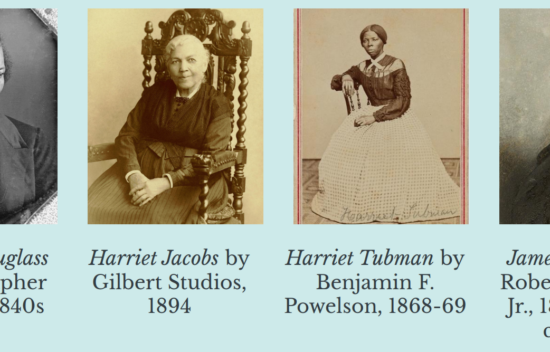The Freedmen’s Bureau and the Challenges of Reconstruction
Option A
Adapted from: O. O. Howard and the Freedmens Bureau from Life, Liberty, and the Pursuit of Happiness
- Lexile: 1090
- Word Count: 519
- Vocabulary: freedmen, organizing, abolitionist, bravely, southerner, unfairly, uh-oh, immoral, Confederate
As the Civil War came to an end, Congress and President Abraham Lincoln worked on plans to rebuild the country and give equal rights to freed African Americans. The Thirteenth Amendment passed in 1865, which banned slavery in the United States. Even though slaves were now free, they still faced many challenges in getting equal rights in politics, society, and work. O. O. Howard, who led the new Freedmen’s Bureau, knew it would be hard to help African Americans gain their rights.
Who was O.O. Howard?
O.O. Howard was a Christian abolitionist whose faith influenced his understanding of slavery as immoral. He was a math professor before the Civil War. During the war, he fought bravely and lost an arm in battle. He later received the Medal of Honor for his bravery. However, some people criticized his leadership because his troops were badly defeated in a surprise attack. They called him “Uh-oh” Howard.
After the war, Howard became the leader of the Freedmen’s Bureau from 1865 to 1874. The Bureau was created to help former slaves and free Black people in the South. It helped them with work, land ownership, and education. Howard ordered that land taken from Confederate owners should be given to freed people. But President Andrew Johnson stopped this plan and made sure the former owners got their land back. This would not be the last time Howard’s work would be challenged or reversed.
The Challenging Work of the Freedmen’s Bureau
The Bureau had many jobs. It gave food and medical care to freed people and set up courts, banks, and schools. It also helped Black men vote when they got that right in 1867. The Bureau worked with northern Republicans who moved south and some white southerners who supported equal rights. However, groups like the Ku Klux Klan fought against the Bureau and tried to stop its work.
Howard had both civilian and military power, but he faced many problems. President Johnson and many white southerners worked against him. The Bureau helped black people learn to read and write and get involved in politics. But southern white leaders found new ways to treat black people unfairly, even without the old laws that had forced freed people to work as slaves.
The Results
The Bureau had some local successes, especially in education, but it didn’t achieve its main goals of giving land to freed people and securing equal rights. In 1867, most power was given to Union military leaders in the South instead of the Bureau. Though Bureau workers tried to help with many problems like hunger and unfair treatment in courts, the army became responsible for protecting freed people’s rights. By the early 1870s, white southern leaders had taken back control of courts and governments. Congress stopped supporting the Bureau in 1872.
Howard cared deeply about education and helped start Howard University in Washington, DC in 1867. But the Bureau’s successes were limited mainly to education and community organizing. Because of political fights, white resistance to equal rights, and weak government support, the Bureau largely failed in its mission. It took more than 100 years for its goals of equal protection under the law to be achieved.
Option B
Adapted from: O. O. Howard and the Freedmens Bureau from Life, Liberty, and the Pursuit of Happiness
- Lexile: 1020
- Word Count: 474
- Vocabulary: bravely, southerner, uh-oh, slavery, rebuild, everyday, free, hungry
After the Civil War, President Lincoln and Congress made plans to help rebuild the country. They also wanted to make sure freed African Americans got equal rights. In 1865, they passed the Thirteenth Amendment, which made slavery illegal in the United States. Even though slavery ended, African Americans still had many problems getting equal rights in politics, jobs, and everyday life. O. O. Howard, who was in charge of the Freedmen’s Bureau, knew this would be very hard.
Who was O.O. Howard?
Howard was a Christian who believed slavery was wrong. Before the war, he was a math teacher. During the war, he fought bravely and lost an arm in battle. He earned a special award called the Medal of Honor. However, some people called him “Uh-oh” Howard because of the times he made mistakes or bad decisions.
From 1865 to 1874, Howard led the Freedmen’s Bureau. This group was created to help freed slaves and free Black people in the South. The Bureau helped them find work, buy land, and get an education. Howard took land from people who had fought against the Union and gave it to freed people. But President Andrew Johnson didn’t like this and gave the land back to its old owners. This was just one of many problems Howard faced.
The Challenging Work of the Freedmen’s Bureau
The Bureau gave people food and medical care. It also set up courts, banks, and schools. Later, it helped Black people vote. The Bureau worked with people from the North and some white people from the South who wanted to help. But groups like the Ku Klux Klan used violence to stop their work.
Many people worked against Howard in his role as head of the Freedmen’s Bureau. President Johnson and many white people from the South didn’t want the Bureau to succeed. The Bureau helped more Black people learn to read and take part in politics. But southern leaders found new ways to take away their rights.
The Results
The Bureau did well with education but couldn’t achieve its bigger goals of giving land to freed people and making sure they had equal rights. In 1867, the army took over most of the Bureau’s power. However, the army had a lot of other things to work on, so the job of education and economic help for Blacks was not focused on. By the early 1870s, white southerners controlled the courts and government again. In 1872, Congress stopped giving money to the Bureau.
Howard kept working for education and helped start Howard University in 1867. Because of people who fought against it, white southerners who didn’t want change, and little help from the government, the Bureau couldn’t do everything it was supposed to do. Many of the things it wanted to achieve didn’t happen for more than 100 years.
Images

This image of General Oliver Otis Howard was taken after he lost his arm in combat.

This 1866 drawing from Harper’s Weekly shows a Freedmen’s Bureau office in Memphis, Tennessee.

